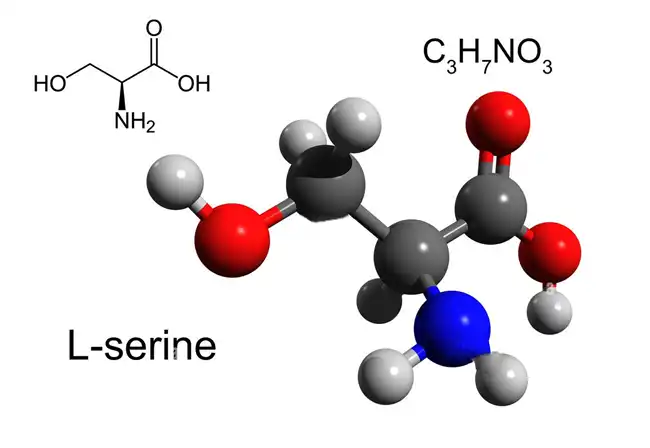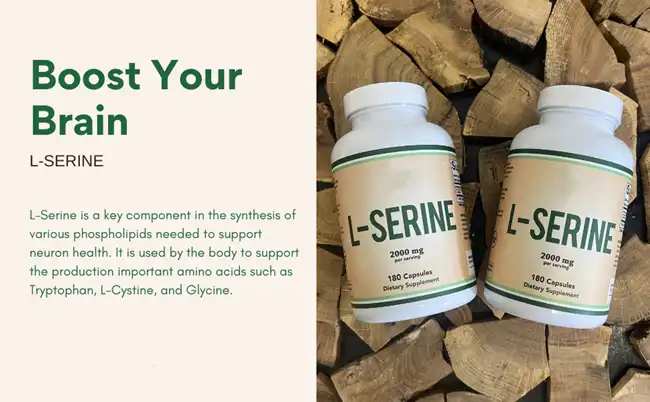Does l-serine Cause Cancer?
2024-07-16 14:44:06
In recent years, L Serine Powder has gained popularity as a dietary supplement due to its potential health benefits. However, concerns have been raised about its safety, particularly regarding its association with cancer. In this article, we will explore the facts surrounding the product and its alleged link to cancer, drawing insights from reputable sources and scientific research.
What is L-Serine Powder and Its Uses?
L-serine powder is primarily used as a dietary supplement to boost the body's L-serine levels beyond what can be obtained through normal dietary intake. It is often marketed to athletes, individuals seeking cognitive enhancement, and those recovering from illness or injury. The supplement industry promotes the powder as a way to support brain health, improve mood stability, and even aid in sleep regulation.
When consumed in amounts typically found in foods, L-serine is generally recognized as safe (GRAS) according to sources like the National Institutes of Health (NIH). Nonetheless, the fixation and explicit utilization of L-serine powder vary altogether from dietary admission alone, provoking inquiries regarding its security under these circumstances.

Is There Evidence Linking L-Serine Powder to Cancer?
The possible connection between l-serine powder and disease is a subject of impressive interest and worry inside both logical circles and among purchasers. Resolving this issue requires an intensive assessment of the accessible logical writing, administrative viewpoints, and well-qualified feelings to give a decent comprehension of the present status of information.
Because it is an unnecessary corrosive amino acid, the body can incorporate it internally. It assumes a urgent part in numerous organic cycles, similar to the creation of synapses, lipid digestion, and protein combination. L-serine is sometimes taken as a dietary supplement to support cognitive function, manage certain neurological conditions, and improve overall health.
Concerns that L-serine may contribute to cancer are largely attributable to experiments conducted primarily on animals or cell cultures. The effects of amino acids like serine on the growth and development of disease cells have been the subject of these studies. As indicated by certain investigations, certain amino acids may hypothetically empower the development of disease cells at high focuses under specific circumstances. Nevertheless, it is essential to keep in mind that the concentrations or conditions utilized in these studies frequently do not correspond to the typical human consumption patterns of L-serine supplements.
For instance, research dispersed in legitimate journals has examined how adjustments in amino destructive absorption, including serine assimilation, can affect illness cell direct. Rather than giving direct proof of causality in human populaces, these examinations habitually center around understanding the atomic systems by which amino acids connect with disease cells.
The FDA in the United States has not identified L-serine as a substance that poses a risk of cancer based on the data that is currently available. Under the Dietary Supplement Health and Education Act (DSHEA), the FDA oversees dietary supplements and evaluates their health based on logical evidence. At the point when utilized as coordinated, L-serine, as other dietary fixings, is for the most part thought to be protected (GRAS).
Additionally, epidemiological examinations looking at the connection between dietary amino acids and malignant growth risk in human populaces have given blended results. Instead of focusing solely on L-serine supplementation, these studies typically investigate broader dietary patterns. While a few observational examinations have recommended relationship between high-protein counts calories and certain malignant growths, the particular job of L-serine stays hazy and requires further examination.
It is essential to take into account the setting in which L-serine supplements are utilized. For specific health conditions like serine deficiency disorders or neurological disorders like amyotrophic lateral sclerosis (ALS), they are frequently prescribed under medical supervision. In these instances, individual health profiles and medical advice are used to weigh the potential risks and benefits of L-serine supplementation.
Moreover, the digestion and usage of L-serine in the body are firmly managed processes. Through intricate biochemical pathways that ensure normal cellular function and health, the body keeps the amino acids in balance. Disturbances in these pathways can happen in sickness states however are not really characteristic of causative associations with malignant growth.
Safety Guidelines and Considerations When Using L-Serine Powder
Despite the absence of concrete evidence linking l serine powder bulk to cancer, caution is advisable when considering any new supplement regimen. Here are some practical guidelines and considerations for using it safely:
-
Consult with a Healthcare Professional: Prior to integrating L-serine powder into your enhancement routine, counseling a certified medical care proficient is vital. They can give customized exhortation thinking about your clinical history, current wellbeing status, and any meds or enhancements you might take. To make sure that taking L-serine supplements meets your specific health requirements and objectives, this step is essential. Medical care suppliers can likewise offer experiences into expected communications and assist with observing your reaction to the enhancement.
-
Follow Recommended Dosages: Adhering strictly to recommended dosages is vital when using the product. Doses can be influenced by factors such as age, health status, and intended use. Manufacturers typically provide dosage instructions on product labels or their websites. Outperforming proposed estimations can extend the bet of horrible effects and may not give additional benefits. Subsequently, for ideal security and adequacy, it is fundamental to exactly stick to these guidelines.
-
Quality and Purity: Selecting high-quality L-serine powder from reputable brands is crucial to ensure product safety and efficacy. Look for supplements that undergo rigorous quality control measures and third-party testing. This ensures that the product is free from contaminants and accurately labeled regarding its ingredients and potency. Quality assurance also involves verifying that the supplement complies with regulatory standards, further enhancing safety and reliability.
-
Monitor for Side Effects: While adverse effects from the powder are rare, monitoring for potential side effects is prudent, especially when starting a new supplement regimen. Some individuals may experience mild gastrointestinal discomfort initially. Monitoring your body's response allows for early detection of any adverse reactions. If you experience persistent or severe side effects, consulting your healthcare provider promptly is advisable to assess the need for adjustments or discontinuation.
-
Long-Term Monitoring: Given the evolving nature of scientific research, it's advisable to stay informed about any new findings regarding the powder and its safety profile. This includes staying updated on regulatory alerts and peer-reviewed studies.

Xi'an ZB Biotech Co.,Ltd is l-serine powder supplier, we can supply l-serine capsules or l-serine supplements. Our factory also can supply OEM/ODM One-stop service, including customized packaging and labels. If you want to learn more, you can send e-mail to Jessica@xazbbio.com or WhatsAPP+8618591943808.
Conclusion
In conclusion, while L Serine Powder holds promise as a dietary supplement for various health benefits, including cognitive function and muscle support, concerns about its safety, particularly regarding cancer risk, should be approached with a balanced perspective. Current evidence does not definitively link it to cancer in humans, but ongoing research and responsible use remain essential. By staying informed and consulting healthcare professionals, individuals can make informed decisions about incorporating L-serine powder into their wellness routines.
References:
- National Institutes of Health. Dietary Supplement Fact Sheet: Serine.
- Food and Drug Administration (FDA). GRAS Substances (SCOGS) Database.
- Scientific Reports. Amino acid uptake is essential for the mTORC1-mediated growth of non-small cell lung cancer cells.
Send Inquiry
You may like
Related Industry Knowledge
- How Long For Magnesium Glycinate To Work?
- Can Alpha Arbutin be Used With Retinol?
- Does Vitamin B12 Help You Lose Weight?
- What is l Serine?
- What Happens If You Take Orlistat Without Eating?
- Can L Glutathione Whiten Skin?
- Para Que Sirve La Quinina?
- What Is A Fullerene?
- What is Vitamin B1 Used to Treat?
- What Is Alpha-GPC Good For?


